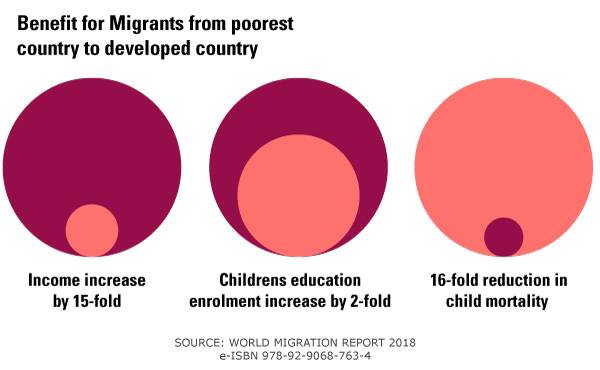- Migration
The impact of migration on the home country
- Disadvantages
Loss of skilled labor:
The most negative impact on the country of exit perhaps is the fact that young graduates (or skilled labor and professional) leave to offer their services to other countries. In many developing countries, doctors, nurses, engineers, and very bright professionals are lost to other countries.
Population and markets:
Businesses do better with a bigger market and more buyers. A growing and healthy population often provide the needed market for economic growth and development. If the youth leave, the population stalls, and demand for some goods and services fall.
Social/Family:
When parents leave, children and other dependents suffer the most, as they lose out on the needed psychological development that they need from good parenting. Many of the children are exposed to social vices at an early age because there is no parental control.
- Advantages
Remittances & Higher quality of life:
It is known, that migrants send lots of money home to support their families. That is a massive flow of foreign exchange or funds that the local government and families can tap into for development and economic growth. If the migrant’s family lives together in the host country, the family often enjoy a higher standard of living.

Better job prospects for locals:
When the youth leave, there is less pressure for jobs, and people are more likely to find something to do.
Knowledge and skills flow:
Particularly for short-term and seasonal migration, migrants often bring home new ideas, skills, and knowledge that they have acquired from their travel. Many businesses, farm practices, and economic ventures have been started by people who got ideas and knowledge during the times they spent in migration.
